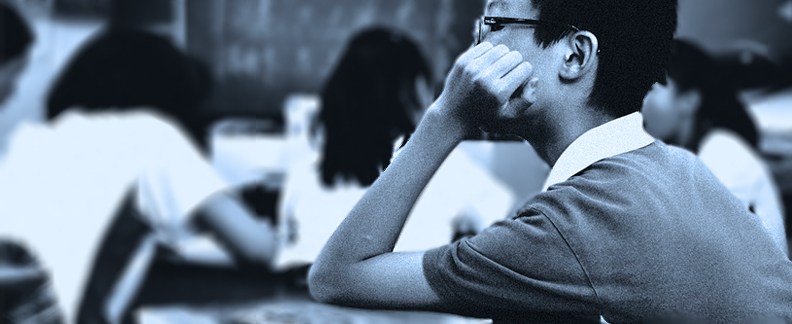Ana Nogales, Ph.D., author of Parents Who Cheat: How Children and Adults Are Affected When Their Parents Are Unfaithful, coined the term “children of infidelity” to identify children of any age whose parent or parents engage in one or more acts of infidelity. As permissive as society has become, most children are badly hurt by a parent’s infidelity because, like the betrayed parent, they feel betrayed.
More than 800 grown children whose parents were unfaithful responded to Nogales’s online ‘Parents Who Cheat’ survey.
- 88.4% felt angry toward the cheating parent.
- 62.5% felt ashamed or embarrassed.
- 80.2% felt that it influenced their attitudes toward love and relationships.
- 70.5% said their ability to trust others had been affected.
- 83% stated that they feel people regularly lie.
- 86% reported they still believe in monogamy.
Younger children might not fully understand, but can be traumatized by the change in the emotional climate in the home
Nogales’s survey confirms that children feel betrayed when a parent betrays a spouse. While the betrayed parent may not expect anything from the cheating spouse, their child is left with hopeful expectations as well as a host of fears. Children often find themselves in a nightmare that offers few viable options. One option is to accept the unacceptable: that they have been betrayed by their parent, and hope that by doing this they will ensure their parent’s love and attention. Another option is to express their outrage, and in doing so risk being abandoned by a person whose love they so desperately want and need. Whether six, sixteen, or twenty-six years of age at the time of a parent’s infidelity, these children are left with psychological issues that—unresolved—can plague them throughout their life. Regardless of their age, children whose parents have been unfaithful often react with intense feelings of anger, anxiety, guilt, shame, sadness, and confusion. They may act out, regress, or withdraw. They may feel pressured to win back the love of the unfaithful parent or to become the caretaker of the betrayed parent. The bottom line is that when parents are role models of infidelity, their children can’t help but react—and they may have a particularly hard time finding their way through the challenging time of dating and marriage.
The Legacy of Infidelity
“I’m not saying that everyone does it, but 55 percent of adult children that came from families where one parent was unfaithful ended up being cheaters themselves,” says clinical psychologist Ana Nogales, author of Parents Who Cheat: How Children and Adults are Affected When Their Parents Are Unfaithful. When a man is unfaithful to his wife, he is being unfaithful to his children as well. How will the children ever trust again? What kinds of relationships will they have? Will they bring unfaithfulness into their own relationships because that’s their experience in their own family and that’s what they expect? Infidelity is a legacy passed from one generation to the next. As adults, these children of infidelity are more likely to be unfaithful to their own partner. Parents who have affairs are not only lying to their partners, they are often deceiving themselves about the impact their infidelity can have on their offspring. ‘The children are too young to understand what’s happening,’ they reason. ‘In any case, it doesn’t concern them. And children are resilient.’ — All of the evidence points to the contrary. People don’t just betray their partners when they shatter family life with a serious affair — the sad truth is that their children grow up believing their parents have been unfaithful to them, too.
Children whose parents have been unfaithful often react with anger, anxiety, guilt, shame, sadness, and confusion
Impact on the child
Younger children might not fully understand what has happened, but nevertheless can be traumatized by the change in the emotional climate in the home. There is a sense that something that was whole that was the foundation for everything else has been severely damaged, if not destroyed. These younger children cannot put this into words very easily, but instead usually develop regressive problems such as physical illness, clinging, bed-wetting, thumb-sucking, fire setting, temper tantrums or night terrors — in fact, anything that seems an appropriate response to the fear that the family is about to be wiped out. Conversely, the child may start trying to be perfect, completely hiding the intense anxiety that is eating away at them on the inside; if the parents are preoccupied the child can feel abandoned and no longer loved. When thinking about young children it is important to keep in mind that the younger a child is, the more the family is their whole world. Older children may also regress, but they are able to better articulate what they are thinking and feeling. The older a child is, the more capable he or she is of abstract thinking; so worries about what is going to happen to the family and how their lives will change or who they will lose if there is a divorce can surface. They may withdraw or act out in an effort to get their parents’ attention, stop the affair, or prevent a divorce. Shoplifting, vandalizing, getting into fights, running away from home, acting hyper, setting fires, and even threatening suicide are common reactions. “My parents will realize they have to stay together if they see how disturbed I am.” Even if you don’t tell your kids about the infidelity, they are likely to find out if they are old enough to understand, simply by overhearing arguments between parents or conversations you have with other people. Kids react in individual ways, but the following reactions are almost universal.
Embarrassment
Kids whose parents are unfaithful often feel deeply shamed by the situation. A parent has done something that deeply hurt the other parent, and which is considered a nono by society. Kids are afraid people will talk about the situation and that by being part of the family your child will be tainted by association.work through the issues. Be available to listen to your child. Let him or her talk and just listen. It’s also important that both parents talk about the situation, as hard as that may be. The cheating parent may be met with silence or ignored, but it is important to apologize for the hurt that has been caused and offer to talk about it with the child in therapy. The non-cheating parent is often in a better situation to have a conversation with the child. It’s hard to do, but the best course is to emphasize that this happened between the parents and does not affect the relationship and the love between the cheating parent and the child. As with all divorces, it takes time for your child to accept what has happened and move forward. Being supportive through this process is the best thing you can do.
Sources
- Kate Figes, “How to ruin your child’s chance of a happy life”. www.dailymail.co.uk. Accessed 28 November 2016.
- Brette Sember, “How infidelity affects chil- dren”. www.womansdivorce.com. Accessed 28 November 2016.
- Susan Berger, “How do affairs affect children”. www.aboutaffairs.com. Accessed 28 November 2016





